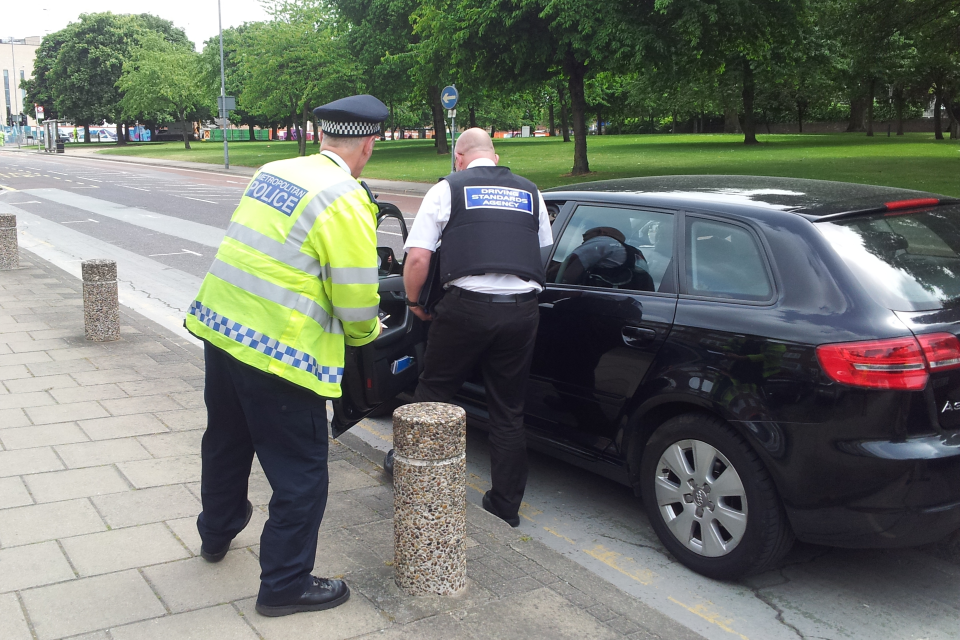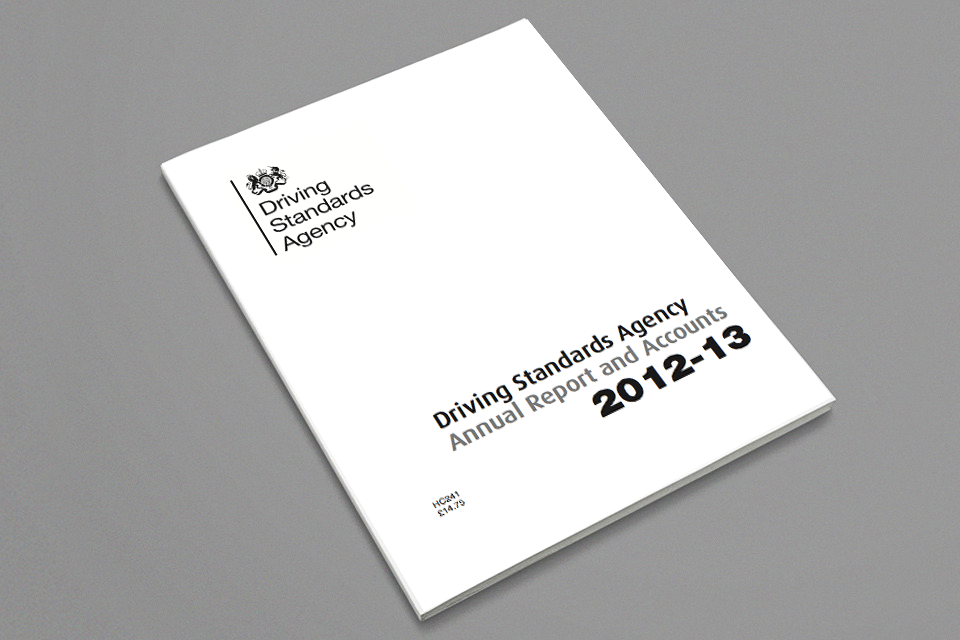Despatch ezine: issue 03/2013
Published 8 July 2013
Applies to England, Scotland and Wales
1. Proposals for a new driving instructor qualification process
On Thursday 27 June, Road Safety Minister Stephen Hammond announced plans to improve the qualification process for driving instructors.
The proposals that DSA is consulting on include a new vocational qualification to replace the current DSA tests which would:
- be delivered at approved training centres
- be assessed by an external awarding organisation
- incorporate transferable credits that could be carried forward to other vocational qualifications, allowing for better job mobility
- be in line with DSA’s national standards for driver and rider training
- reflect any changes made following the green paper on young drivers planned for later this year
There’s also a proposal to change the trainee licence scheme so that trainees would only be able to give paid instruction when accompanied by a fully qualified instructor.
The consultation is also looking for views on changes to the ADI register – including restructuring the ADI grading system and publishing more information about ADIs to help learners pick their instructor.
Stephen Hammond said:
Driving instructors play a vital role in helping to make Great Britain’s roads some of the safest in the world. We want to build on the excellent work that is already being done by making sure that the qualification process for instructors incorporates the latest teaching methods and best practice.
This will help to further improve driver training, and supports our wider plans to ensure that learners and newly qualified drivers are properly prepared for the road.

The full consultation paper is available on GOV.UK
You can have your say on GOV.UK. The consultation closes on Thursday 8 August 2013.
2. How the modernising driver training proposals might work
These 3 examples show how people qualify to become an ADI. The first shows how an ADI can qualify now. The other 2 show how it might work in future.
2.1 Example 1: current
John wants to start training to become an ADI.
-
Gets a criminal record check.
-
Applies to DSA to start the qualifying process - motoring convictions are reviewed.
-
Takes and passes the ADI part 1 test (theory test).
-
Finds an ORDIT trainer to prepare for the ADI part 2 (driving ability) and part 3 (instructional ability) tests.
-
Takes and passes the ADI part 2 test.
-
Applies for a trainee licence to get experience, and gets paid for giving lessons.
-
Takes and fails the ADI part 3 test, and books it again.
-
Takes and passes the ADI part 3 test.
-
Applies to DSA for his first ADI badge.
-
Takes a check test.
2.2 Example 2: 2015
Sandra wants to start training to become an ADI.
-
Applies to an approved training centre - they review with her, her suitability to take the qualification.
-
The training centre accepts her application.
-
Successfully completes the first part of the qualification.
-
Gets practical experience of instruction with a qualified trainer/assessor..
-
Training and assessment continues until she can meet the standards required.
-
Completes the training and is awarded the vocational qualification.
-
Gets a criminal record check - motoring convictions are also reviewed.
-
Applies to DSA for her first ADI badge.
-
Takes a standards check.
2.3 Example 3: 2015
Paul was a teacher but now wants to become an ADI.
-
Applies to an approved training centre - they review with him his suitability to take the qualification.
-
The training centre agrees he can claim some credits from his teaching qualification against the ADI vocational qualification.
-
The course is therefore a little shorter and cheaper.
-
Undertakes the first part of the vocational qualification successfully.
-
Starts to get practical experience of instruction with a qualified trainer/assessor.
As a result of the practical experience gained, he decides the job is not for him. He takes the credit he has gained for the first part of the qualification and uses it to help find another job.
3. DSA and VOSA merger to improve services
DSA and the Vehicle and Operator Services Agency (VOSA) are set to merge into a single agency under changes announced by Roads Minister Stephen Hammond.
The new agency, delivering both driving and vehicle tests, will be in place in 2014.
Stephen Hammond said:
We need to make sure that we continue to keep pace with customers’ needs and deliver services in a way which is both convenient and cost effective.
These changes will put customers at the heart of the services they rely on and allow for a more coherent approach to service delivery. By bringing testing and standards services into a single organisation we will make life easier for customers and potentially reduce the fees we charge.
Customers should be reassured that the same high quality service delivery will continue throughout the transition period.
This announcement follows the consultation on the motoring services strategy which ran from 13 December 2012 to 7 March 2013.

Alastair Peoples became the Chief Executive of both DSA and VOSA on 1 July 2013
VOSA Chief Executive Alastair Peoples will lead the new merged agency. Look out for an interview with Alastair in the next issue of Despatch.
Decisions on the other proposals detailed in the motoring services strategy will be announced in due course.
4. Removing restrictions for disabled ADIs
Plans to lift restrictions on disabled people who want to work as driving instructors have been put forward in Parliament.
Under the current rules, only instructors who hold a medically restricted driving licence have to take an emergency control assessment to qualify as a driving instructor. These instructors are also restricted to giving tuition in a car with automatic transmission, even if the pupil is a full licence holder.
Under the new plans, the ‘Disabled ADI’ category could be removed, so that the qualification process for restricted licence holders is the same as it is for those with a full licence. Also, qualified instructors who have a restricted licence would be able to give training in a manual transmission car, as long as the pupil holds a full licence.
ADI Registrar, Mark Magee, said:
Good driving instructors play a vital role in keeping Britain’s roads among the safest in the world by producing competent and responsible drivers.
It is extremely important that we provide a level playing field for anyone who is capable of offering this first class driver training. By removing unnecessary barriers we will ensure there is fair access for disabled people to qualify and work as driving instructors.
If the plans are approved by Parliament the changes could come into force in 2014.
5. DSA clamps down on illegal driving instructors
Last month DSA and the Metropolitan police carried out a joint operation targeting illegal driving instructors in the Ilford and Barking areas.
Marked police cars were used to stop vehicles displaying L-plates and driving school signage. Candidates were asked if they had paid for instruction and instructors were asked to provide evidence of their entitlement to charge for giving lessons.

Andy Rice, DSA's Head of Fraud and Integrity, during the operation
During the operation, using 2 police cars, 48 vehicles with L-plates and driving school signage were stopped, the candidates asked if they’d paid for instruction and the instructors’ accreditation checked. This resulted in:
- the arrest of 1 person suspected of carrying out illegal instruction
- another person being issued with a warning and told not to instruct until they’d received their new ADI badge
- confiscation of 2 photocopied badges where the original was in another car
- confiscation of 2 out of date ADI badges
- 4 warnings for failure to display a valid badge
DSA’s Head of Fraud and Integrity, Andy Rice, said:
Operations of this nature are a vital part of our attempts to stop illegal driving instruction. Those carrying out the fraud have often not undergone any background checks, or an assessment of their ability to drive or teach, and their car insurance may also be invalid. This puts learners and other road users at risk.
I would like to thank all the approved driving instructors and members of the public who continue to give us information about illegal instruction. It is largely through their efforts that we’re able to continue our effective work in stopping fraudulent instructors.
We investigate all reported cases and work closely with the police to identify offenders and bring them to justice.
ADI Registrar, Mark Magee, said:
The message is clear: if you’re not approved by DSA, but continue to undertake paid instruction, then expect to face the penalty.
6. Round-up of other news
6.1 New website to help road users improve their skills
The Safe Driving for Life website (www.safedrivingforlife.info), developed by DSA in partnership with its official publishers, TSO, will be rolled out in 4 phases. The website has useful information for both learners and experienced drivers and riders, instructors and professional drivers and riders.
Phase 1 is available now and includes:
- the learners’ section
- the Safe Driving for Life shop
- practice theory tests for car, motorbike, lorries, buses and coaches
- a suitability tool for people to test whether they’re cut out to be an ADI

The learner driver section of the Safe Driving for Life website
The other 3 phases will all be launched by August 2013, with development continuing beyond then according to user needs and interests.
GOV.UK remains the official website for all government services and information about learning to drive, including booking tests.
6.2 Improvements to drink drive rehab scheme
DSA has announced changes to the drink-drive rehabilitation scheme.The changes mean courses will be more widely available and delivered to a more consistent standard. The full cost of courses is also moving from the taxpayer to the user.
Road Safety Minister, Stephen Hammond, said:
These changes will make it easier for courts to place offenders on these courses as well as ensuring more consistent standards and shifting the costs from the taxpayer to the offender.
6.3 DSA annual report and accounts published
DSA’s annual report and accounts have been published on GOV.UK.

DSA's annual report and accounts was published on 27 June 2013
The report accounts for DSA’s performance over the last financial year, including the extent to which the agency met its service standards and financial targets.
It’s structured around DSA’s business plan for the respective year and its key priorities for the year.
6.4 Motorcycle manoeuvre testing to remain off-road
A Department for Transport review of motorcycle testing has concluded that an off-road manoeuvre test is safer and cheaper. The government will therefore not implement a single-event on-road motorcycle test.
